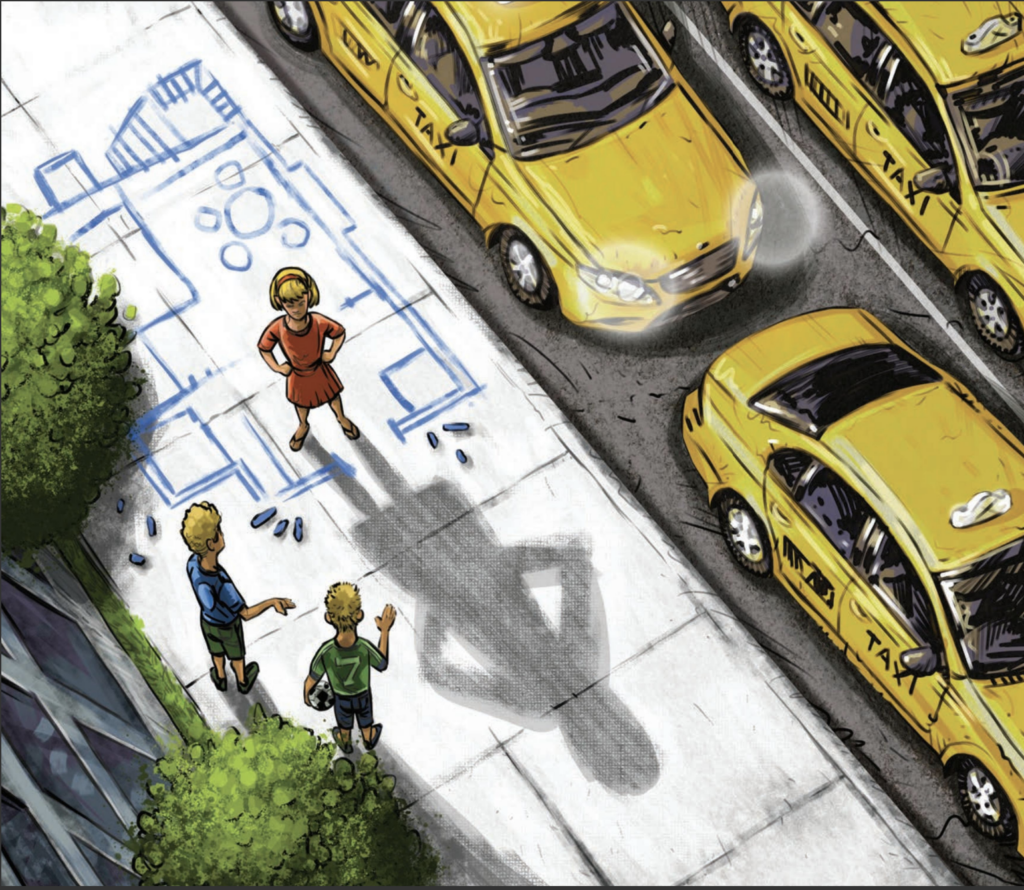THE PLAYHOUSE

The Playhouse
Fiction by Max Steele
Illustration by Mariano Santillan
The professor was standing now before the doors of the American Embassy. He was early for an appointment with an old frat brother, a legal attaché who would help him procure a fast Mexican divorce. There was no urgency really in getting a divorce. It was simply that he could not concentrate on a permanent separation. When he tried he would end up in a hot soapy shower thinking about putting on freshly starched cotton clothes. Someone should have warned him in Raleigh not to drink on the plane. Here he was in Mexico City, a mile high, still a bit dazed.
Three blond children, not more than five or six years old, obviously embassy kids, a little girl and two little boys, were playing house in and around a sort of blueprint design of squares and rectangles drawn with green chalk on the sidewalk. A solid block of taxicabs, more than the professor had ever seen, was passing on the Paseo de la Reforma.
Something about the broad boulevards and the taxi horns reminded him strongly of Paris, where twenty years ago he had spent his one sabbatical. The next year he had met his wife, who often reminded him that he had never taken her to Paris as he had promised. Or done any fun things. There was never enough money on his salary, she accused him, to do any fun things. In the late autumn air the feeling of déjà vu was so strong that he felt it was a dream, or a forgotten passage from a novel he was living through.
The two boys were now standing near him whispering, and the little girl was in the chalk-line house, busily sweeping, putting things on shelves, getting pots out of a stove only she could see, and washing dishes in the silent sink.
At a signal he did not notice, the small boys, giggling and full of themselves, marched slowly to the front of the house and knocked on the door. “Knock. Knock.”
The little girl seemed genuinely surprised. She came through the house, untying her apron and opened the door, drying her hands on the apron.
“Oh, there you are!” She was quite annoyed. “Late again, as usual. And furthermore you have brought a perfect stranger home to dinner.” Oh, she was vexed. “Without even asking. Without even calling!”
“Yes, my dear,” the little husband said proudly, full of his secret. “I would like for you to meet the man who owns the merry-go-round.”
As the boys entered the house, the professor glanced at his watch. He was still five minutes early. Enough time to walk to the far corner.
As he strolled up the dark gusty boulevard, he could still hear the high laughter of the children, and at the sound of their thin, excited voices his heart almost broke. After all, how were they to know (for they were still children), how could he have known she would run off with the man who owned the merry-go-round?
